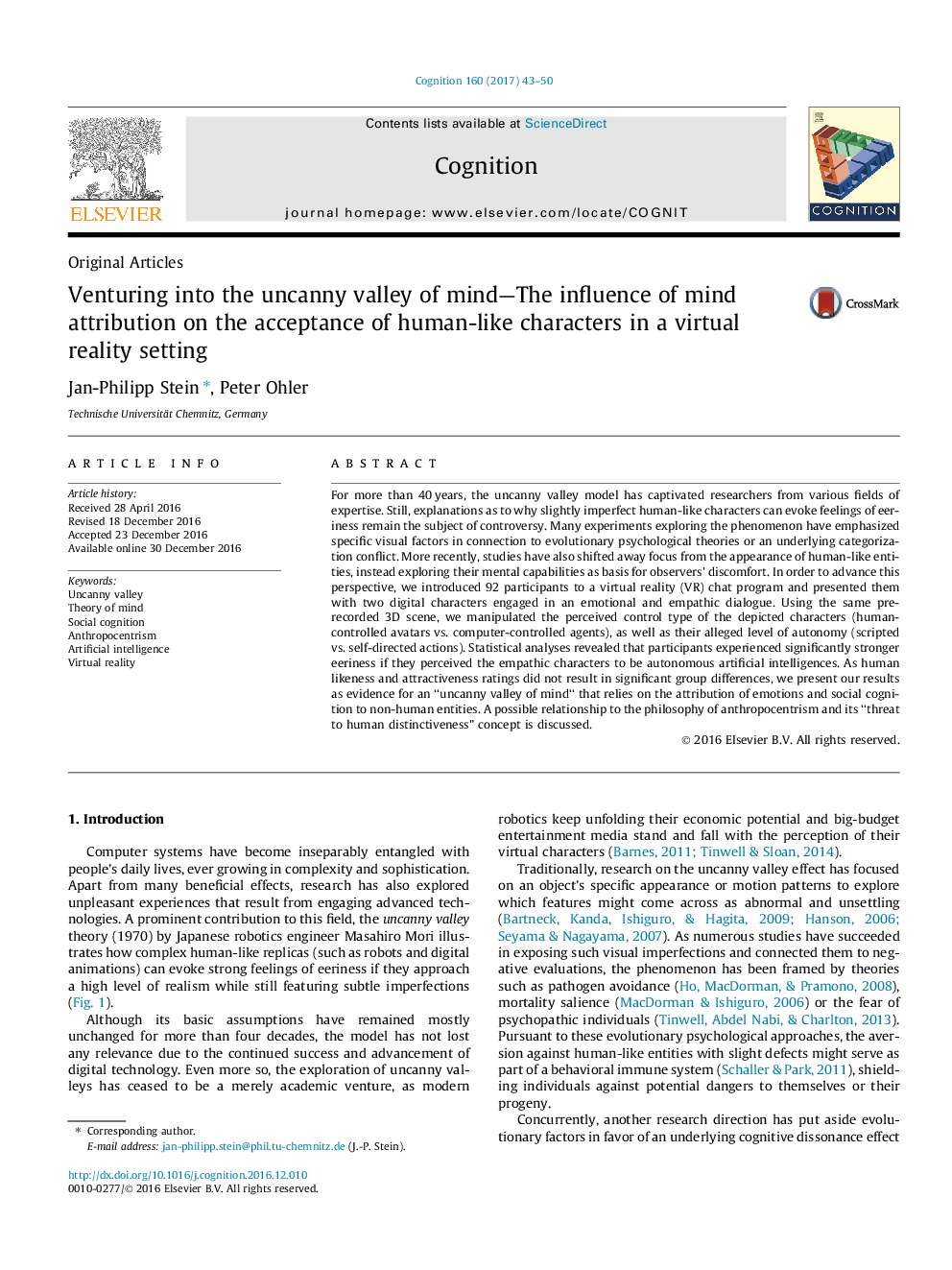| کد مقاله | کد نشریه | سال انتشار | مقاله انگلیسی | نسخه تمام متن |
|---|---|---|---|---|
| 5041622 | 1474107 | 2017 | 8 صفحه PDF | دانلود رایگان |
- The uncanniness of “digital minds“ connects to threatened human distinctiveness.
- Empathy and social cognition are proposed as particularly unique human traits.
- A virtual reality experiment reveals aversion against emotionally aware computers.
- Humans seem eerier when they demonstrate scripted instead of spontaneous empathy.
For more than 40Â years, the uncanny valley model has captivated researchers from various fields of expertise. Still, explanations as to why slightly imperfect human-like characters can evoke feelings of eeriness remain the subject of controversy. Many experiments exploring the phenomenon have emphasized specific visual factors in connection to evolutionary psychological theories or an underlying categorization conflict. More recently, studies have also shifted away focus from the appearance of human-like entities, instead exploring their mental capabilities as basis for observers' discomfort. In order to advance this perspective, we introduced 92 participants to a virtual reality (VR) chat program and presented them with two digital characters engaged in an emotional and empathic dialogue. Using the same pre-recorded 3D scene, we manipulated the perceived control type of the depicted characters (human-controlled avatars vs. computer-controlled agents), as well as their alleged level of autonomy (scripted vs. self-directed actions). Statistical analyses revealed that participants experienced significantly stronger eeriness if they perceived the empathic characters to be autonomous artificial intelligences. As human likeness and attractiveness ratings did not result in significant group differences, we present our results as evidence for an “uncanny valley of mind“ that relies on the attribution of emotions and social cognition to non-human entities. A possible relationship to the philosophy of anthropocentrism and its “threat to human distinctiveness” concept is discussed.
99
Journal: Cognition - Volume 160, March 2017, Pages 43-50
